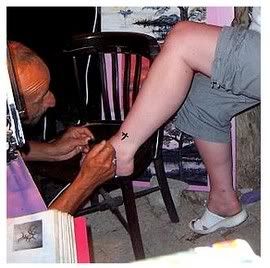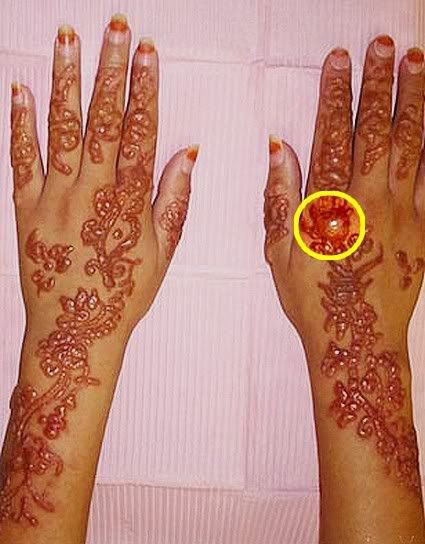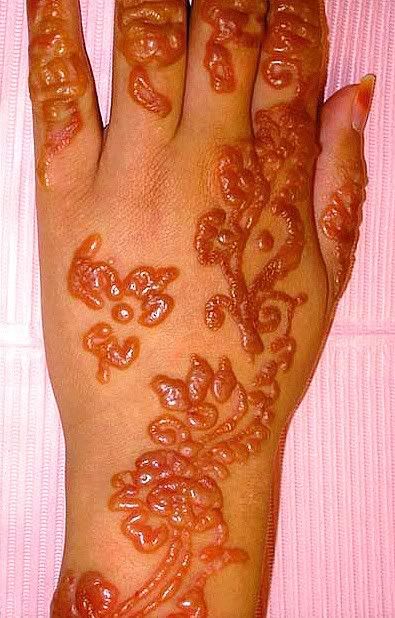 A few weeks ago, a friend blogger from overseas (for privacy reasons, I won't tell who) came to the Philippines for a brief vacation. During a trip to Baguio City, she and her friends got themselves henna tattoos. My friend had her henna tattoo placed on her right ankle. Everything was fine until a few days later when she developed an allergic reaction. Her friends, on the other hand, did not develop any allergies at all.
A few weeks ago, a friend blogger from overseas (for privacy reasons, I won't tell who) came to the Philippines for a brief vacation. During a trip to Baguio City, she and her friends got themselves henna tattoos. My friend had her henna tattoo placed on her right ankle. Everything was fine until a few days later when she developed an allergic reaction. Her friends, on the other hand, did not develop any allergies at all."It's too itchy. What am I going to do?" she asked worriedly.
I told her not to scratch it, and that I will look at it when I see her the following day.
When I saw her, I noticed that the tattoo was fading and while there was still some redness, my friend said it did not itch as bad as when we last talked. I assured her that everything will turn out fine as the tattoo fades and disappears. But next time, don't get a tattoo anymore.
She was lucky. It could have been worse.
Last Thursday, the New England Journal of Medicine featured the following in its clinical medicine images:

Image via NEJM
The case study said these were the hands of a 19-year-old healthy Kuwaiti girl after getting a henna tattoo for a wedding. Note the blister-like reactions. The culprit? PPD, or p-phenylenediamine.

Image via NEJM
PPD is a chemical that is mixed with henna to hasten drying and to produce a darker tattoo. Nothing wrong with that, except that PPD is also a known contact allergen and has been shown to produce skin reactions to susceptible individuals (like my friend). When the skin absorbs it, it can indeed cause redness of the affected areas.
'Redness' is what my friend got, but for other people, like the Kuwaiti woman above, allergic reactions can be far more severe.
The Kuwaiti woman got well after being treated with strong topical corticosteroids, and the skin reactions subsided eventually. But it was noted that where the lesions used to be, there were now "extensive postinflammatory hyperpigmentation." That's derma-speak for darkened areas, which, will take quite some time to return to normal.
I am not going to advise you not to get henna tattoos, especially if you have done it before and nothing happened. But if you're like my friend or the Kuwaiti woman, maybe you shouldn't do it anymore....unless the one doing the tattoo can assure you that there is really no PPD in his henna mixture.